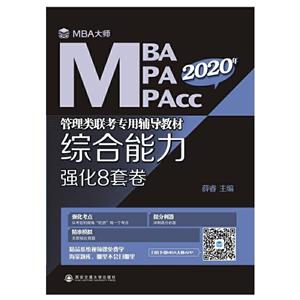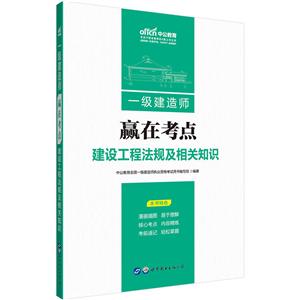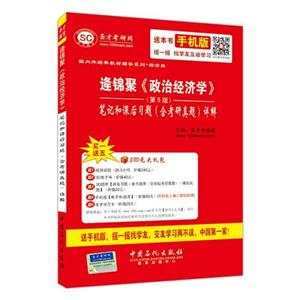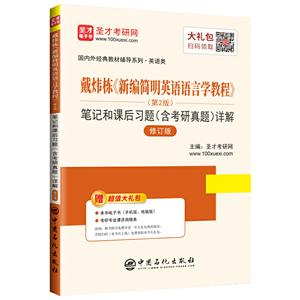初中英语教师职业发展需求:基于云南多语民族地区的实证研究

|
初中英语教师职业发展需求:基于云南多语民族地区的实证研究作者:钟维著 开 本:24cm 书号ISBN:9787030559791 定价: 出版时间:2019-11-01 出版社:科学出版社 |
初中英语教师职业发展需求:基于云南多语民族地区的实证研究 本书特色
相较于大城市里的教师而言,工作在多语民族地区的英语教师长期以来一直面对不同的困境,而这些困境恰恰成为其专业发展需求的社会动因。在职英语教师培训通常以三种方式展开:①针对新课标或政策的专题性短期培训;②专家入校系统培训;③自主展开的学习。前两种多为学校导向,而后者是个人导向。
《初中英语教师职业发展需求:基于云南省多语民族地区的实证研究》以2010—2013年参与云南某高校的“国培计划”部分受训者作为被试,针对多语民族地区初中英语教师职业发展的需求展开实证研究。《初中英语教师职业发展需求:基于云南省多语民族地区的实证研究》共分三个部分九个章节。**部分即**章,整体介绍研究背景、意义和研究的核心问题。第二部分为第二至第五章,分别介绍了建构主义学习理论、成人学习动机理论、教师信念理论,其中教师信念包括班杜拉的交互决定模型、教师工作效能和语言学习态度理论。第三部分为第六至第九章,分别从定量和定性研究的数据出发,分析并解读了多语民族地区初中英语教师的职业发展需求,重点探讨其自我效能以及语言学习态度和培训动机之间的内在关系。
初中英语教师职业发展需求:基于云南多语民族地区的实证研究 内容简介
本书切实了解教师在实际英语教学中的困难以及教师职业发展的现状和需求不仅有助于提升教师在职培训的质量, 更利于改善多语民族地区的英语教师教育课程体系。本书提出社会建构的认知发展框架 (SCCP) , 指出教师的职业发展需求是其认知心理学相关因素, 如工作动机和
初中英语教师职业发展需求:基于云南多语民族地区的实证研究 目录
Contents Explanation of the Abbreviations Part 1 Background of the Research Chapter 1 Introduction 4 1.1 National Training Plan 4 1.2 English Language Education Policy in China: Ideology Changes from Political-Oriented to Utilitarian-Oriented 8 1.2.1 Political-oriented English education: the 1860s to the mid-1970s 8 1.2.2 Economic-oriented English education: 1978 to 2000 9 1.2.3 Instrumental English education: expansion after 2001 10 1.3 Problems of English Education in Multilingual Ethnic Minority Areas of Yunnan 12 1.3.1 Language barriers in multilingual areas 15 1.3.2 English teachers, poor teaching quality 16 1.4 Significance of the Research 18 1.5 Research Questions 19 1.6 Research Rational 20 Part 2 Theoretical Framework of the Research Chapter 2 Key Concepts on Teacher Professional Development 28 2.1 Teaching as a Profession 28 2.2 Professional Teachers in Western Terms and Shide in Chinese Context 31 2.2.1 Professional teachers in Western terms 312.2.2 Shide: old Confucian requirements 33 2.3 Stage of Teacher Professionalism in Current China 36 2.4 Teacher Knowledge Base 45Chapter 3 Social Constructed Cognitive Process 47 3.1 Constructivist Learning Theory 47 3.1.1 The “novice” and the “expert” in constructivist learning process 47 3.1.2 Vygotsky,s dialectical constructivism 48 3.1.3 Instructional scaffolding 49 3.1.4 Organizational context 50 3.2 Constructivist Learning Theory and In-service Teachers, Training 50Chapter 4 Motivation and Adults,Education Participation 52 4.1 From Maslow to Herzberg 52 4.2 Roger Boshier,s EPS 54Chapter 5 Teacher Beliefs 57 5.1 Bandura,s Model of Reciprocal Determinism 57 5.2 Teacher Efficacy and Its Influencing Factors 59 5.3 Attitudes in Language Learning 62 Part 3 Major Findings Chapter 6 Language Learning Attitudes of Secondary School English Teachers in Multilingual Areas 67 6.1 Distribution and Strength of ELA 69 6.1.1 General English learning attitudes 70 6.1.2 Five English learning attitudinal dimensions 71 6.1.3 Spearman rank correlation analysis of ELA 73 6.2 Distribution and Strength of Ethnic Minority Language Learning Attitudes 73 6.2.1 General learning attitudes towards ethnic minority languages 73 6.2.2 Five ethnic minority language learning attitudinal dimensions 74 6.2.3 Spearman rank correlation analysis of the ethnic minority language learning attitudes 756 6.3 Strength and Correlation of Language Learning Attitudes 76 6.3.1 Strength and correlation of AC 76 6.3.2 Strength and correlation of AS 78 6.3.3 Strength and correlation of AL 80 6.3.4 Strength and correlation of attitudes to social value of the target language 81 6.3.5 Strength and correlation of attitudes to the particular uses of the target language (PU) 82 6.4 Teachers, General Attitudes to Language Learning 83 6.4.1 “English is a cultural carrier.” 83 6.4.2 “English has more social values than ethnic minority languages.” 85 Chapter 7 Teacher Efficacy of Secondary School English Teachers in Multilingual Areas 88 7.1 ETE Strength 89 7.2 Teacher Efficacy Strength and the Demographic Features 90 7.2.1 Age 90 7.2.2 Teaching years 91 7.2.3 Teaching subjects 93 7.2.4 Professional titles 94 7.2.5 Ethnicity 95 7.3 Difficulties for Teaching English in Rural Areas 95 7.3.1 “I don,t know how I can motivate my students to learn English.” 96 7.3.2 “The principal always assigned me to do other things not related to my teaching.” 99 7.3.3 “Family guidance is so poor that parents barely have positive influences on students.” 100 7.4 The language Barrier for Teaching English in Multilingual Areas 104 7.4.1 “This is a multilingual area and you don,t need to learn English to survive.” 105 7.4.2 “English can only be taught in Chinese, but I have many students who cannot speak Chinese.” 108 7.4.3 “I don,t know their languages and I can only teach in Chinese.” 1107.5 Beliefs on Professional Teacher and Teaching Profession 112 7.5.1 “If I care more about the students, they would gradually believe in us.” 113 7.5.2 “Sometimes I like being a teacher but sometimes I don,t.” 114 7.5.3 “Being a teacher doesn,t mean teaching knowledge only, and it also means educating students to be responsible for society.” 115 7.5.4 “We are the lowest of the society but doing the hardest job.” 115 Chapter 8 Education Participation Motivation of Secondary School English Teachers in Multilingual Areas 119 8.1 Exploratory Factor Analysis 120 8.2 Strength of Educational Participation 123 8.3 Differences of EPS Strength of English Teachers Among Various Demographic Groups 124 8.3.1 Teaching years 124 8.3.2 Age 127 8.3.3 Professional titles 129 8.3.4 Ethnicity 130 8.4 Correlations Between ELA and EPS of Engl
中小学教辅 教师用书
在线阅读
- 最新内容
- 相关内容
- 网友推荐
- 图文推荐
| [高考] 2022 西安电子科技大学《软件工程》大作业答案 (2022-04-25) |
| [家长教育] 孩子为什么会和父母感情疏离? (2019-07-14) |
| [教师分享] 给远方姐姐的一封信 (2018-11-07) |
| [教师分享] 伸缩门 (2018-11-07) |
| [教师分享] 回家乡 (2018-11-07) |
| [教师分享] 是风味也是人间 (2018-11-07) |
| [教师分享] 一句格言的启示 (2018-11-07) |
| [教师分享] 无规矩不成方圆 (2018-11-07) |
| [教师分享] 第十届全国教育名家论坛有感(二) (2018-11-07) |
| [教师分享] 贪玩的小狗 (2018-11-07) |






